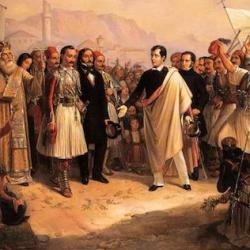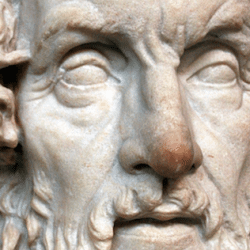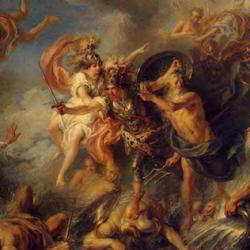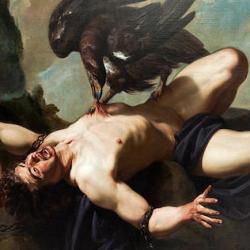Greeks also seem to have practiced some form of ancestor cult and, perhaps related, a cult of heroes. In a detailed discussion of the archeology of the cult of the dead in early Greece in the American Journal of Archeology , Carla Antonaccio summarizes the evidence that she wishes to test by archeological evidence:
“Although the Greeks did speak of ancestors using a variety of terms, there is less written evidence for a cult of ancestors than for hero cult. In the historical period, the Greeks practiced what Humphreys calls ‘memorialism’ rather than ancestor worship; they were motivated (at least when they write down their thoughts on the subject in the Archaic period and after) by a desire to be remembered by family and passersby. The Greeks of historical periods, however, did not routinely immortalize or divinize their family dead. Moreover, for most Greeks genealogies did not articulate the generations of the dead or structure the relations of the living. Yet, as discussed already, several scholars have proposed that ancestors were local and familial, the founders of a clan, for example, and that their descendants maintained a cult at their graves. Famous figures could receive worship as both ancestors (family) and heroes (community), either in the same or different places. Ancestor cult was suggested as the original model; when some ancestors became heroes, the practice became more general, or some originally unheroic ancestors were elevated to heroic status after the cult of heroes had taken hold. Heroes, then, could be considered as ancestors, especially when claimed by members of an elite; Nagy, too, observed that heroes could be the completely unhistorical ancestors of a kinship group, like a genos , and he proposed that hero cult grew from worship of ancestors; hero cult was a ‘revival of a continuous heritage.’ For Farnell, the earliest clear-cut evidence for ancestor cult was only sixth century in date, and he denied that the Greeks generally worshipped the dead. Since the early work of Rohde, Farnell, and others, ancestors all but dropped out of the discussion until the last 10 years. For this the extension of hero cult to Mycenaean tombs with the increase of archaeological evidence is largely responsible.”











